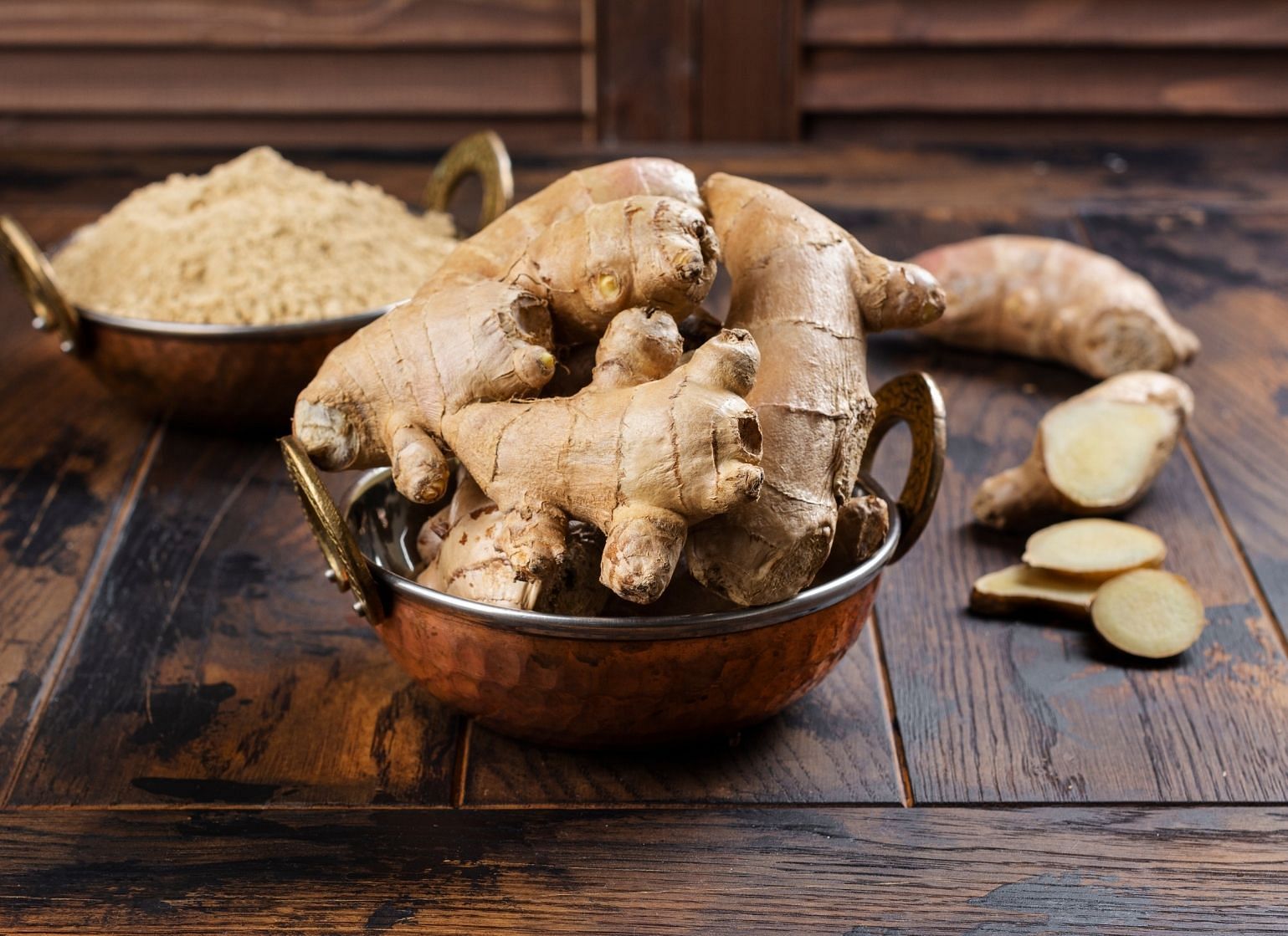Is Ginger Good for Hair Growth? - Man Matters

Ginger, a common food spice, has been used medicinally for centuries. The plant’s roots, Zingiber officinale, are used in traditional medicine to treat inflammation and gastrointestinal ailments.
One thing you might not know about ginger - it is also great for your hair. Ginger is packed with antioxidants and an antiseptic, which help treat acne, burns, dandruff, and brittle hair. Let’s discuss that in more detail in this article.
Is Ginger Good for Hair: A Scientific View
Ginger has traditionally been used to promote hair growth and reduce hair loss. However, the scientific research related to this is conflicting:
- Ginger contains antioxidants and circulatory agents that stimulate blood flow and, thus, hair growth. A study on alopecia areata found that ginger extract reduced oxidative stress and improved hair growth.
- A study conducted in India found that ginger extract contained in a herbal gel could promote hair growth.
- The active ingredient and antioxidant, gingerol, found in ginger can also relax blood vessels and improve circulation of blood, which in turn allows for better nourishment of hair follicles.
Other Benefits Of Ginger For Hair
1. Controls Dandruff
Dandruff causes hair loss as dead skin cells clog follicles, leading to hair loss. Ginger contains antifungal, anti-inflammatory, and antiseptic properties that combat dandruff.
2. Soothes irritated scalp
Having a strong anti-inflammatory effect helps relieve itching and redness caused by infections and excessive use of harsh hair care products that dry and irritate your scalp.
3. Nourishes hair follicles
When applied to your scalp, ginger can increase blood circulation, which keeps your hair follicles well nourished.
4. Protects hair from damage
Ginger contains antioxidants that help neutralise free radicals and reduce oxidative stress caused by environmental aggressors such as pollution, smoke, and UV rays emitted by the sun.
How to use ginger for hair
1. Ginger oil
For an invigorating all-over aroma, apply ginger oil to the scalp and hair after 15-30 minutes. You can find ginger oil either as an extract or essential oil. The essential oils need to be diluted with a carrier oil before applying.
2. Ginger juice
You can cut off an edge of a fresh ginger root and massage it directly on your scalp or blend it in a blender and apply it all over your hair. You can make ginger juice directly from ginger roots.
3. Ginger hair mask
To make a ginger hair mask, combine equal parts of ginger juice, essential oil, or extract with a carrier oil, such as argan oil, coconut oil, or jojoba oil. Apply the mask evenly to hair and massage in. Before rinsing, cover your hair with a cap and leave it on for up to 30 minutes.
You can add something acidic to the mask if you treat the scalp only, such as yoghurt, lemon, or apple cider vinegar.
Ginger Side Effects For Hair and Scalp
Ginger is generally considered safe for most people. However, if you are allergic to ginger, you should avoid applying it to your hair and scalp. Be sure to perform a patch test (rub ginger into the inside of your elbow) and wait for 24 hours before using it on your scalp to make sure there are no adverse reactions such as itching, inflammation, redness, or burns. You should stop using ginger if you experience any of these reactions.
Summing Up
Ginger may help treat dandruff and prevent hair loss but research is mixed on its hair growth properties. While some studies suggest that ginger may promote hair growth, others suggest inhibiting it. Be cautious and use your discretion before using this on your hair. If you continue to experience hair loss problems, consult a physician to identify the underlying cause and treatment.

